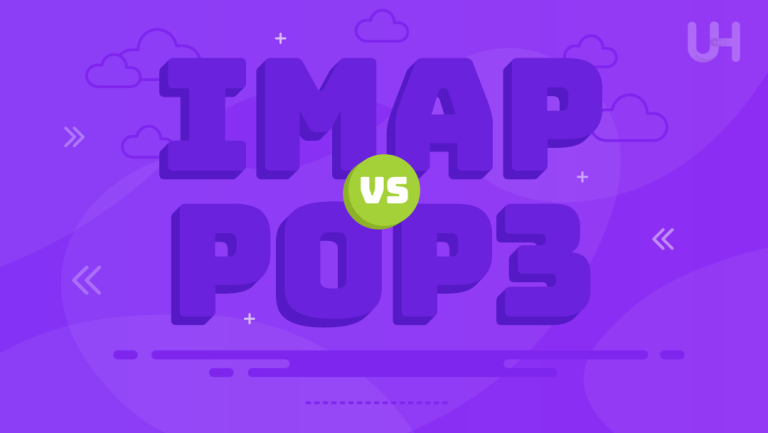Email is one of the most effective communication channels in 2024. It is generally used for personal, business, promotional, and professional correspondence. If you use an app like Gmail or Outlook, you have used an email client. In this article, we explore what is an email client and demonstrate how it works, with examples.
An email client’s primary functions include helping users navigate through the inbox, manage and organize its contents, and segregate spam emails in the spam folder. So, let’s dive straight into its fundamentals, and help you find the best email client in 2025.
What is an Email Client?
An email client is a software application used to manage and send emails. It allows users to access their email accounts, read and compose messages, organize emails into folders, and manage contacts. Email clients can be web-based (accessed through a web browser, like Gmail or Outlook.com) or installed on a computer or mobile device (like Microsoft Outlook, Mozilla Thunderbird, or Apple Mail).
Email clients typically support multiple email accounts, offer features like spam filtering, and provide tools for scheduling emails, managing attachments, and syncing with calendars and other productivity tools. Think of it as a personal assistant for handling emails and keeping the inbox clutter-free. From a marketing perspective, email clients can trigger spam filters, which in turn affects domain reputation and email deliverability.
How Do Email Clients Work?
Email clients bridge the gap between you and the email provider, ensuring a smooth experience. Here is a brief overview of the process.
Establish Connection
When you sign into your email account, the email client establishes a secure connection between your device and the email server. This lets you access your mailbox and send and retrieve electronic messages.
Download and Sync
Next, the email client downloads and syncs messages between the email server and your device. Depending on the protocols and settings, the client may download the entire message or a summary, allowing you to view basic information, such as sender, date, and subject line.
Manage Emails
Once the emails are downloaded, the client organizes them in the inbox for easy access. Standard categories include starred, drafts, sent, spam, etc. You can also create custom categories to stay organized.

Send Emails
When you compose a new message, the email client communicates with the server using Simple Mail Transfer Protocol (SMTP), the standard email-sending protocol. If you use emails for business correspondence, choose a DDoS protected hosting plan for optimum performance and maximum security.
POP and IMAP
Internet Message Access Protocol (IMAP) and Post Office Protocol (POP) are the two ways in which email clients communicate. While POP downloads emails from the server, IMAP synchronizes messages between the client and the server.
What are the Benefits of Using an Email Client?
Using an email client has several key benefits such as productivity and communication. Let’s walk you through the complete list of perks.
Centralized Management
One of the primary advantages of an email client is the ability to manage multiple email accounts from a single interface. Whether dealing with work, personal, or project-specific email addresses, a client allows you to pack them into one platform. This reduces the time and effort spent logging in and out of different services, helping you efficiently track all communications.
Advanced Organizational Tools
Email clients offer a range of powerful tools to help organize your inbox. You can use customizable folders, tags, and filters to automatically sort incoming messages based on the sender, subject, or keywords. This enables you to prioritize and access critical emails and filter less important ones.
Boost Your Business with Secure Email Hosting
Host your business email on Ultahost’s secure, privacy-guaranteed email hosting servers and promote your site with every message you send with an email address that matches your website.
Offline Access
Unlike web-based email services that require an active Internet connection, many email clients let you access emails offline. You can read, draft, and organize messages even when you’re not connected to the internet, making it easier to stay productive during commutes, flights, or in areas with unreliable connectivity. Once you’re back online, any changes you’ve made will automatically sync with the server. A VPS NVMe hosting plan provides superior performance, allowing you to sync messages quickly.
Seamless Integration
Email clients integrate with calendars, task managers, contact lists, and other productivity tools, allowing you to schedule meetings, set reminders, and manage tasks directly from the client. This streamlines workflow, making it easier to organize your responsibilities.
Enhanced Security
Email security is a top priority in today’s digital age. Many email clients offer encryption options that ensure your emails are secure from unauthorized access. Advanced spam filtering also helps keep your inbox free from phishing attempts and unwanted emails, reducing the risk of falling victim to cyber threats.
Customizable Interface
Email clients often allow you to customize the email interface to suit your preferences and work habits. Whether adjusting the layout, choosing a theme, or setting up custom notification alerts, you can tailor the email client’s appearance and functionality to match your needs.
Consistent User Experience
Finally, email clients offer a consistent and reliable user experience across all devices. Whether you’re accessing your emails on a desktop, laptop, tablet, or smartphone, the interface and features remain familiar, ensuring a consistent user experience.

Top 5 Email Clients in 2025
Here are the top five email clients in 2025. Consider researching them to find the best email client for your application.
Microsoft Outlook
Outlook is one of the most popular email clients, especially in business environments. It offers robust features, such as calendar integration, task management, and advanced email organization tools.
Mozilla Thunderbird
Mozilla Thunderbird is a free, open-source email client that is highly customizable. It supports multiple accounts, powerful filtering, and a range of add-ons for enhanced functionality.
Apple Mail
Apple Mail is the default email client for devices powered by macOS and iOS. It is known for its clean interface and seamless integration within the Apple ecosystem with services like iCloud, Calendar, and Contacts.
Gmail
While Gmail is primarily a web-based email service, it can also be configured as a client for managing multiple email accounts. The client offers excellent features like powerful search, labels, and Google Workspace integration. Additionally, Gmail, with some help from tools like Gmelius, can be transformed into a powerful shared inbox solution, perfect for team collaboration and efficient email management.
eM Client
eM Client is a user-friendly client for Windows and macOS. It supports multiple email accounts, offers calendar and contact management, and includes chat integration for an all-in-one communication solution.
Conclusion
As we move into 2025, email clients continue playing a crucial role in managing personal and professional communications. So, whether you need centralized management for multiple accounts, offline access, or seamless integration with other productivity tools, the right email client will streamline your workflow and help you stay on top of your inbox.
Looking for a reliable web hosting partner for your business website? Choose Ultahost’s IP Dedicated Server Hosting solutions for maximum flexibility and customizable configurations. Enjoy fast, secure, and reliable connections, DDoS protection, and high storage space, starting at just $84.15/month.
FAQ
What is an email client?
An email client is a software tool used to manage and send emails. It allows users to access multiple email accounts, organize messages, manage contacts, and integrate with calendars and other tools.
Why do I need an email client?
You need an email client to efficiently manage your email communications, especially if you have multiple accounts.
How do email clients work?
Email clients connect to email servers to manage emails. They download messages, organize them into folders, synchronize with the server, and use SMTP to send emails.
Which is the best email client in 2025?
The best client is the one that best meets your needs. We handpicked the five best email clients in 2025 to help you choose.
What is the difference between an email client and an email server?
An email client provides the user interface while an email server handles email delivery and storage.
Is there a better email client than Gmail?
The top email clients offer similar features and functionalities. So, you can choose Gmail, Outlook, Apple Mail, or any other client you prefer.
Is Outlook an email client?
Yes, Microsoft Outlook is one of the most popular email clients on the market. It is mostly used in business environments.










